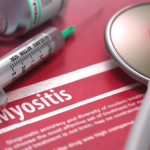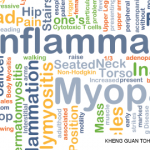Lisa Christopher-Stine, MD, MPH, professor of medicine and neurology and director of the Johns Hopkins Myositis Center in Baltimore, is the immediate past president of MSRD and has been a member of the state’s rheumatology alliance since 2001. She served as president from 2006–2012 and again from 2018–2022.
“Dr. Gujar has an excellent vision for the future of MSRD, and I think it’s valuable to have MSRD leadership regularly transition between rheumatologists who work in private practice and those of us who work in academia,” Dr. Christopher-Stine says. “We’ve also discussed the possibility of holding some MSRD meetings outside of Baltimore to make it easier for rheumatology professionals in other parts of the state, including western and southern Maryland, to attend.”
Dr. Christopher-Stine notes that Maryland utilizes a unique healthcare financing model, the All-Payer System (APS). This statewide rate-setting program requires all insurers, both public and private, to pay the same, administratively set rate for any service provided at hospitals. Yet while the state has made notable progress in controlling hospital costs, APS is not without its challenges.
“Infusion therapy for RA and other rheumatic diseases can be difficult to navigate under APS,” Dr. Christopher-Stine says. “Since infusion therapy can be managed at a patient’s home, a physician’s office or an outpatient clinic rather than at a hospital, where the cost is higher, there’s greater payer scrutiny of where infusion services are delivered.”
Dr. Christopher-Stine also notes that telemedicine has become a more popular option for rheumatologists since the beginning of the pandemic.
“Many rheumatologists adopted telehealth visits out of necessity but are continuing it for some patients who live in rural areas or who prefer the convenience,” she says.
Although telemedicine doesn’t replace the need for in-person exams, Dr. Christopher-Stine says it can be a useful tool for patients with stable disease as well as patients with rare rheumatic diseases, such as myositis, for whom traveling to an appointment can be burdensome or even cost-prohibitive.
“As a rheumatologist with expertise in myositis, a rare subspecialty, I was licensed to provide telehealth services in over 30 states during the pandemic,” she says. “Telehealth can also be valuable in pediatric rheumatology, where there’s a nationwide scarcity of subspecialists.”
Linda Childers is a health writer located in the San Francisco Bay Area.



